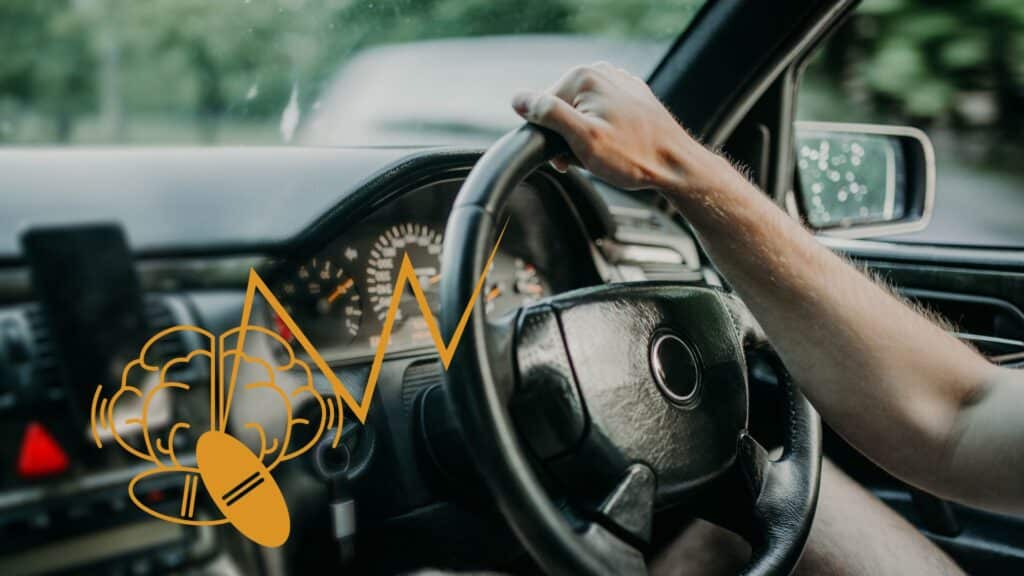
The roadside random drug testing can detect the following illicit drugs:
- Cannabis.
- Ecstasy or MDMA.
- Cocaine.
- Methamphetamine (Ice or Speed).
If the test returns a positive reading for illicit drugs present in the drivers system, the test will need to be repeated, either on the roadside or after being taken back to a police station. If the secondary test (oral fluid test) is still positive, you will be required to take additional laboratory tests including blood sample tests or urine samples. These tests, generally, take longer to process than a saliva test. The driver must not drive while waiting for the test results.
If these tests confirm the presence of illegal drugs, the driver will be charged with a drug driving offence. If you are subject to any drug driving offences it is recommended that you seek legal advice from any reputable drug driving lawyers as soon as possible in order to have the best chance to avoid the severe penalties that the drug driving charges incur.
Drug Driving Penalties in New South Wales
In most cases, if you are charged with a drug or combined driving offence, you will have to attend court.
Depending on the seriousness of the offence, you may receive:
- a court-imposed fine
- an Alcohol Interlock Order
- a licence suspension, cancellation or disqualification
- a prison sentence.
Being convicted of any drug driving penalties in New South Wales can lead to not only licence disqualification and fines but can leave a permanent mark on your criminal record.
On-the-Spot penalties
For most drug driving cases policing may be reluctant to issue a notice or charge a driver. The policeman may send warnings, or a fine on-the-spot, if the driver was the first to be offended. Cases that are not dealt with by the court are usually because it’s a first-time offence, or a less serious offence. In these cases the driver would receive an on the spot fine by way of penalty notice and an immediate licence suspension.
Court Imposed Fines & Suspensions.
If you are convicted of any drug driving charges in court, the penalties can be unfavourable. Penalties issued by the courts can include ‘Court-Imposed Fines’ as well as ‘Minimum and Maximum Disqualification Periods’. The court can disqualify your licence for any length of time within the minimum and maximum periods listed above.
These consequences can be avoided if the court applies section 10 of the Crimes (Sentencing Procedure) Act 1999.
Cocaine, Cannabis, MDMA, Ecstasy, Speed or Ice in saliva, blood or urine sample.
If the presence of any of the following drugs are detected in your oral fluid, blood or urine sample you will be charged with a drug driving offence.
- Active THC (Cannabis).
- Methylamphetamine (Speed/Ice).
- Methylenedioxymethylamphetamine (MDMA or Ecstasy).
- Cocaine.
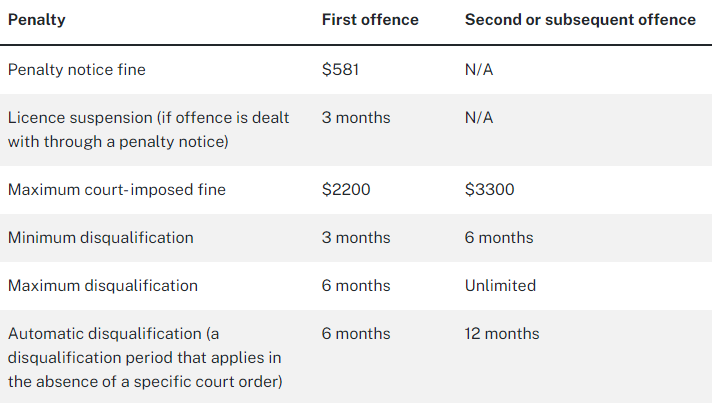
Morphine in blood or urine sample.
If the presence of morphine is detected in your blood or urine sample (unless you can prove it’s for medical use), you will be charged with a drug driving offence.
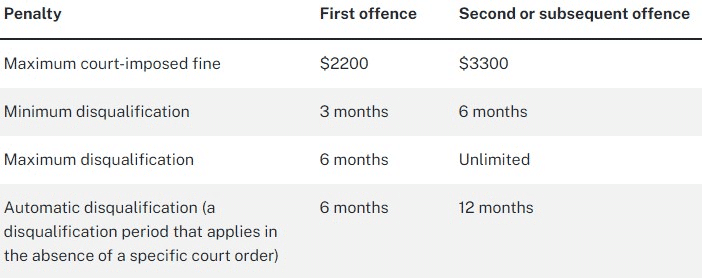
What are driving under the influence (DUI) offenses.
If you are caught driving while affected by illegal or prescription drugs or alcohol you may be charged with Driving under the influence (DUI).
The following penalties apply to a driving under the influence offence:
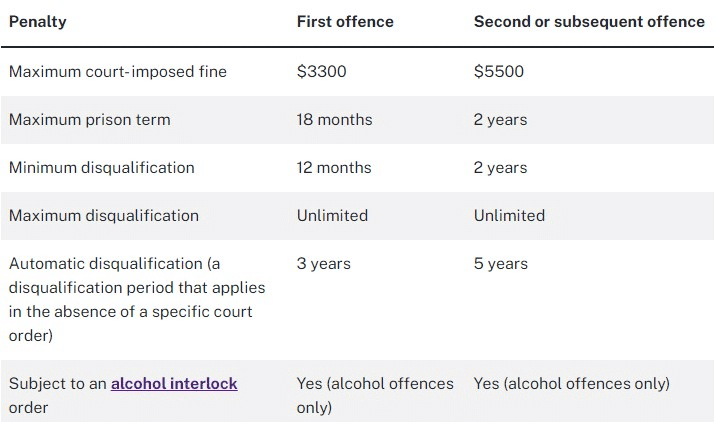
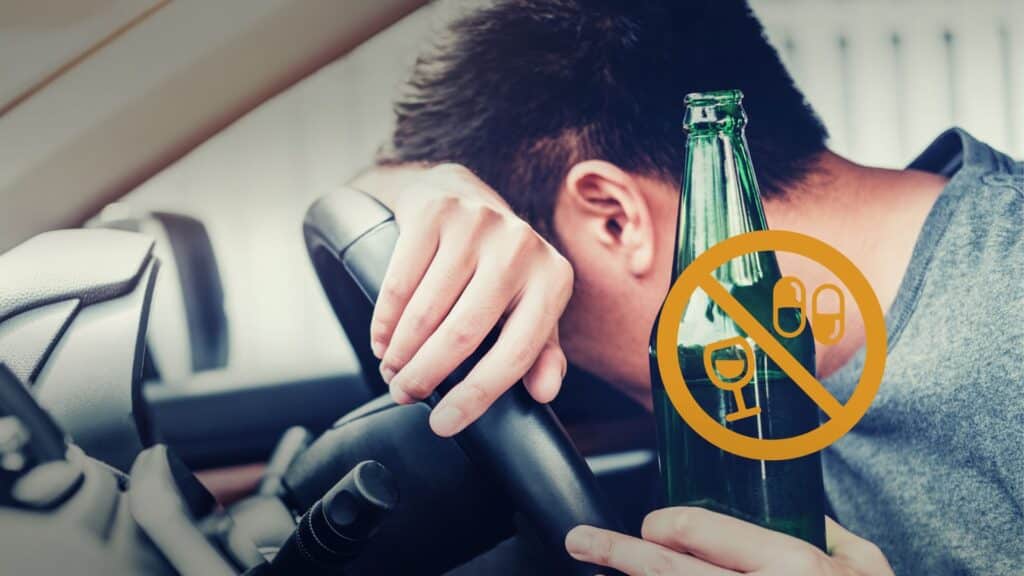
The offence of having both Alcohol and Illicit/Prescribed drugs in your system while driving.
After the tragic drink driving accident that caused the death of four children in Sydney in 2020, a new law was introduced on 28 June 2021 to target drivers with both an illegal blood alcohol concentration and illegal drugs in their system. These offences are called combined drink and drug driving offences. The Road Transport Legislation Amendment (Drink and Drug Driving Offence) Act 2021 came into force on 28 June 2021.
The offence is designed to deter this high risk behaviour and send a clear message to drivers that they are putting themselves and others at significant risk when mixing alcohol and drugs with driving and this behaviour will not be tolerated on New South Wales roads.
The new section 111A offence consists of three tiers of offences, each reflecting a different degree of severity and applicable penalties.
Tier 1 – High range PCA combined with the presence of a prescribed illicit drug (s 111A(1)).
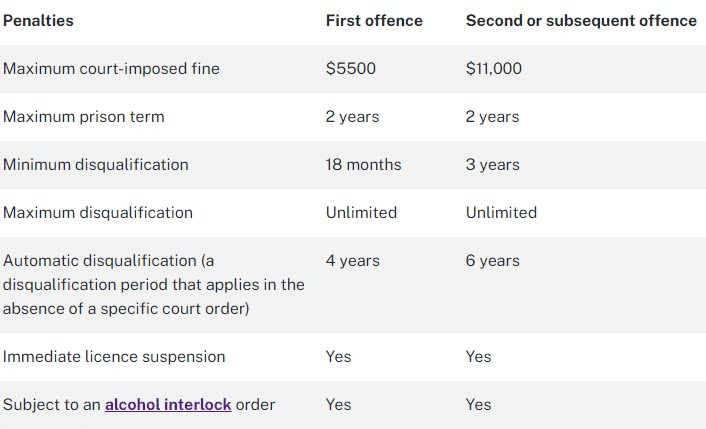
Tier 2 – Mid range PCA combined with the presence of a prescribed illicit drug (s 111A(2)).
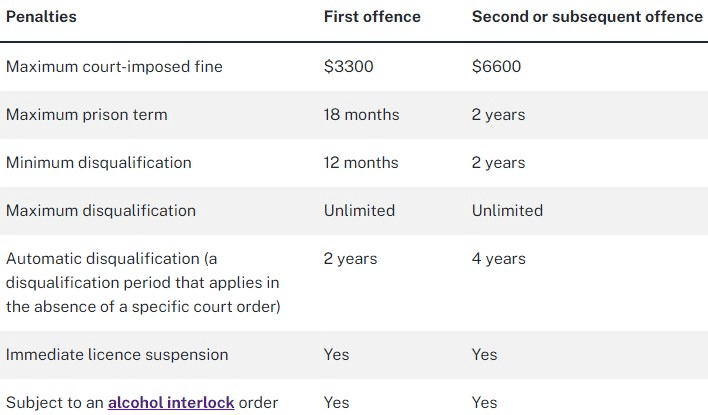
Tier 3 – Low, novice or special-range PCA combined with presence of a prescribed illicit drug, if the driver has been convicted of a combined offence within the previous five years. (s 111A(3)).
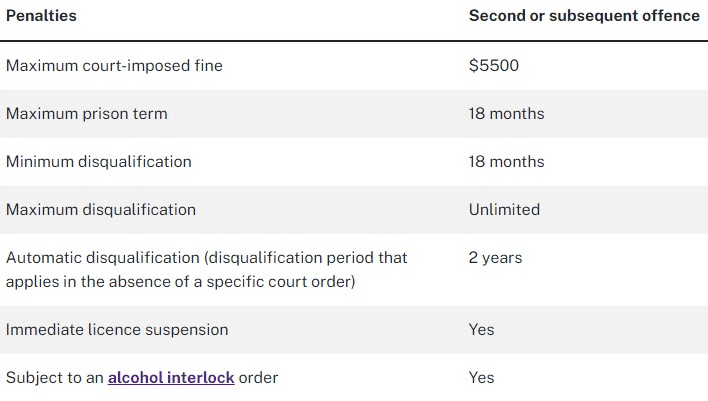
Penalties for failing to provide test samples.
It is against the law to fail to provide a saliva, blood or urine sample if you are asked by the police officer. You will be found guilty.
First Offence:
- The maximum court-imposed fine is $3300.
- The minimum disqualification period is 6 months.
- There is no maximum disqualification period for a first offence and the magistrate may suspend your license indefinitely.
- The automatic disqualification period (a disqualification period that applies in the absence of a specific court order) is 3 Years.
Second or subsequent Offence:
- The maximum court-imposed fine is $5500.
- The maximum prison term is 18 months.
- The minimum disqualification period is 12 months.
- There is no maximum disqualification period for a second offence and the magistrate may suspend your license indefinitely.
- The automatic disqualification period (a disqualification period that applies in the absence of a specific court order) is 5 Years.
Possible defences to drug driving offenses
Reasonable mistake – A defence may be available in some cases where the accused has made an ‘honest and reasonable mistake of fact’, which entails that they were truly unaware that the drug was in their system.
Prescription – A defence to prosecution includes if the illicit substance was morphine and the presence in the one’s blood or urine was caused by the consumption of a substance for medicinal purposes.
Traffic Offender Intervention Program
The court may also give lenient sentences if someone participates in the traffic offender intervention program. These programmes address traffic regulations and laws, as well as potential consequences when they violate laws. The certificates can then be mailed back to the judge to determine sentence.
Vehicle Sanctions
Police can apply a vehicle sanction if a driver is a repeat, high-risk drink or drug driving offender.
This means that if you have had a previous drink or drug driving conviction in the last 5 years, and are caught offending again, police can confiscate your vehicle or licence plates.
Vehicle sanctions can be applied to:
- mid range PCA offences (a BAC of 0.08 to less than 0.15)
- high range PCA offences (a BAC of 0.15 or more)
- combined drug and alcohol offences
- a refusal offence – when a person refuses or fails to do additional tests after failing an initial roadside breath or saliva test.
If you are caught drug driving in NSW, you will be convicted and charged of a drug driving offence such as Driving Under the Influence. A first time offence will result in 3 months of disqualification from driving for three months and a 572-per-day fine.
The Maximum penalty for repeat offenders can be a term of imprisonment.
Yes, unless the court applies section 10 of the Crimes (Sentencing Procedure) Act 1999, there will be a minimum 3 month licence suspension.


